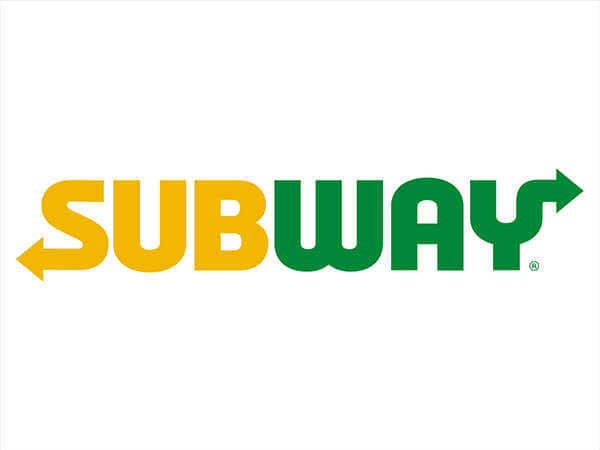
More than half the working population wants to be their own boss. This shouldn’t come across as a surprise because running a business improves work-life balance, increases earnings, and gives an individual a chance to take control of their career. However, starting one’s own business isn’t always a piece of cake. From finding the right opportunity, finding the capital to set up the business, investing in inventory, ensuring cash flow, finding and managing employees, marketing and promotions, and gaining an edge over competitors – the list goes on.
Thankfully, there is one way to simplify the process of starting a business with low investment and guaranteed returns for those who are new to the business world. Buying and managing a franchise outlet ensures that you have your cake and can eat it as well. You get to own a business that has a proven business model with clear strategies and scope for rapid expansion. But how does one go about buying a franchise? Here are some important steps to the process.
Steps to Buy and Own A Franchise
- Set a Budget
- Do the Research
- Shortlist Franchises
- Submit an Application
- Finalize the Details
Set a Budget
Depending on the industry and brand you choose, owning and setting up a franchise can take a sizeable amount of capital. It’s best to set an upper limit on your initial investment before you step into the market. Here are a few things that can help you decide your budget:
- Capital, Franchise Fees and Royalty
Draw up your budget based on preliminary research. Decide on what kind of business would you like to have and check out the average cost of owning a franchise in the industry. If you don’t have the required capital, you may want to consider applying for a business loan or raise capital from friends and family. Also, do basic research on the franchise fees and royalty you may have to pay. To buying franchise.
- Partnership
Think about if you want partners on board as well. Having a partner makes it easier to scale up, brings a diversity of ideas and creates more accountability.
- Return on Investment and Time Taken
You must also have a fair idea of how long it will take for you to a. break-even and b. become cash flow positive. All of this will factor in when you are trying to decide which franchise is right for you. To buying franchise.
Do the Research
A crucial step in owning a franchise is exercising your due diligence. Once you have an idea of the franchises you might be interested in, dig up as much information as you can about the business. Here are a few things you should definitely look up:
- Company Website and Conferences
The company’s website should give you a basic idea about the franchise model and allow you to sign up for events specifically oriented towards potential franchise owners.
- Social Media
Scour the business pages of the company on social media to gauge if the franchise is a right fit. This is also a good place to look for reviews and get in touch with other franchise owners.
- Existing Franchise Owners
It is critical that you get in touch with existing franchise owners and, if possible, pay them a visit to see their operations.
- Hire a Franchise Consultant
This is an often-ignored part of the research process but can be extremely useful to you if you are completely new to the industry or are thinking of setting up multiple franchises. Talking to a franchise solutions expert can be extremely beneficial at this stage in your consideration.
Shortlist Franchises
Armed with the above-mentioned information, you can now begin shortlisting the franchises that you are interested in. Here’s how you can narrow down the list:
- Visit your franchisor
At this point, you should pay a visit to the franchisor (if you haven’t already) and have a direct discussion with them. When you visit, ensure you have a clear understanding of what they do and how they generate revenue.
- Risk Analysis
Evaluate your ROI based on the training and support they are willing to provide. One of the parameters that you can also use to shortlist franchises is to see if the company has territories available in prime locations.
Submit an Application
This is a crucial stage in buying your franchise. Your application is a request for further information. Most companies will assign you a representative who will walk you through the entire process.
- Eligibility Criteria
Most franchises have a set of eligibility criteria to ensure a successful franchisee. Ensure you meet these terms when you submit the application.
- Air your concerns
If you have any doubts or need clarification, this is the time to put it all on the table. Make sure that the company representative answers all your questions satisfactorily before you proceed.
- Franchise Disclosure Document
Go through all the terms and conditions carefully and ideally, hire a lawyer to do this for you. Make sure to read the fine print so as to not get caught in aggressive and predatory business conditions. Scrutinize all the terms carefully before you sign the agreement.
- Disclosure Period
Both parties get some time to evaluate the other and no agreement is signed during this period.
Finalize the Details
This is the final step in buying your own franchise. After careful consideration and assessing all the risks, you can go ahead and sign the agreements. Ensure you maintain constant communication with the executives to directly elicit their support in setting up your operations.
Congratulations! You just bought your first franchise.
The hard part is now over. All that is left now is to open your franchise for business.
Here is what you need to know about getting started:
- Location
- Permits
- Equipment & Inventory
- Signage
- Working Capital
- Hiring
- Training
- Marketing
- Launch
The Location
Now that you have everything in order, consider whether you want to buy a piece of land to build the infrastructure or rent an existing premise. Renting may require you to set down a hefty sum for deposit and pay for leasehold improvements. If you choose to buy the real estate instead, this will cost you more but might be beneficial in the long run.
Required Permits
You will need to seek permits and licenses before you get started on your franchise. These depend on the different legal requirements based on the location that you intend to set up your franchise. Keep in mind that getting these permits may require a fee.
Equipment and Inventory
Depending on the kind of franchise you are setting up, you may need purchase equipment or product inventory. Generally, the franchisor helps their outlets in procuring the same.
Signage
The signage and display boards are vital as they let consumers know about your business. Most franchises include this as a package deal in the franchise fees. If this is not included, you will have to purchase signage as well.
Working Capital
You will require a deposit for rent and enough capital to pay for recurring and fixed expenses. Like bills and salaries, for the next few months. Furthermore, you will require capital to pay your future employees, security team and vendors. To buying franchise.
Hiring Help
Invest in finding the right employees before you break ground on the new facility. A business is only as successful as the people behind it. Interview potential candidates and choose skilled and experienced employees that will add value and contribute to your success in the long run. If you have a business partner, you should factor in their views as well when hiring. Remember, not only will you need employees to help market the business, but you may also require salespersons and consultants to give you an initial publicity boost. You will also need a security team to guard the premises and protect the inventory.
Rigorous Training
You may have already received some training from the franchisor. However, if this is your first business, you will need additional training. This also includes training your employees to handle the equipments and machines and interacting with customers. Remember, in a franchise business, the customer is already aware of the business and will expect standardised treatment, services, and products from you.
POS (Point of Sale)
Test all the tools and technology, like the POS system, that you will be using in your daily operations. A digital cash register that allows cardless payments, QR Code and NFC based payments is essential in today’s stores. Keep in mind that while most people may prefer cash, digitization is catching up. You should be prepared for the future and provide a seamless customer experience.
Marketing and Advertising
The good thing about owning a franchise is that you do not have to spend a lot on consumer awareness. If the original franchisor is already a huge success, your customer acquisition cost is also going to be relatively low.
You can rely on word of mouth, cold calling and email marketing for promoting your outlet. However, do not forget to include other proven forms of marketing and advertising.
- TV Ads: You can run short ads on the local cable to target nearby residents and customers. A TV ad will provide you instant publicity to your most relevant customers.
- Print Ads: Although we live in a digital age, the power of print media is still undeniable. Run ads in local magazines, newspapers and print out flyers or brochures that you can give away to potential customers. This type of marketing, commonly called proximity marketing is still popular all over the world.
- Out of Home Advertising: Billboards and banners are a prime example of OOH ads. This can help spread the word to a sizable audience quickly and instantly. You can also include a QR code on these ads that is linked to the Google Maps location of your business.
- Google and Facebook Ads: Online ads are extremely effective when targeted correctly. You can set the location and demographics of your target consumer to get the word out there and reach customers that are looking for you.
Soft Launch
Most businesses do a soft launch before the final launch to remedy any potential challenges that can impact the business operations or customer experience. This helps you work out any kinks and improve business practices for maximum benefit.
There you have it. You now know the basics of purchasing, owning and running a franchise. Always remember to evaluate each step and ask the right questions. With the right set of employees and a good backing, your franchise is destined for success.









